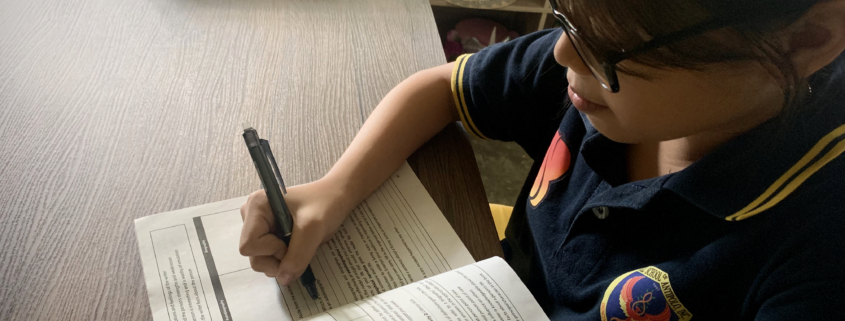By Hanz Josef Vicencio, Grade 8
The “No Homework Policy” has become a popular topic in recent times, stoking the interest of everyone from students, teachers, netizens, and the like. Everyone seems to have an opinion on this bill, all coming from different perspectives, and all of these opinions are reasonable, but not everyone is caught up with the truth of the matter.
What is the “No Homework Policy”?
The No Homework Policy refers to House Bill 3883 “No Homework on Weekends Act of 2019”, and its counterpart Senate Bill 966 “No Homework Law”. These bills aim to give more time for the students to bond with their parents and have a rest from school work. Senate Bill 966 expands on this by saying that it can help ease the burden of teachers, and equalize the amount of homework given to students of different socio-economic backgrounds.
The bill’s plan accomplishes this by banning the giving of assignments during the weekends and limiting the amount of homework that a student can receive in a day, stating that the homework given should be doable in four hours. This will be strictly enforced, with a fine of Php 50,000 and 1-2 years of jail time.
What do the people think of it?
Although the bills were made with good intentions, many have pointed out the possible effects of the bills, saying that homework is a very important part of the school. And without homework, there won’t be any reinforcement or follow-up on the lessons. Some say that this will encourage laziness. Students will spend more time going through social media. Some mentioned the fact that not all families can make full use of the supposed family bonding time given by the bill.
On the other side, people, mostly students, argue that they deserve a break from schoolwork, and how studying all week can be draining. Homework can be considered a burden, especially when they are given so much. As stated in the Senate bill, this can cause stress to the students, parents, and teachers alike.
Final thoughts?
Again, these arguments are reasonable, and both sides have a point. Yes, the bill can become a detriment to the standard of education in the Philippines and to the studies of the students. It can also contribute to the problem of social media usage among students, especially those in high school, but it can also bring families closer, help both the students and teachers to recover from schoolwork. Depending on what you care about more, you’ll view the bill as either positive or negative. It’s all a matter of perspective.
The No Homework Policy certainly has its ups and its downs, and it can and should be improved while it hasn’t been implemented yet. In ways that can help ease the concerns of the people, like changing the disproportionate punishment or clearing up certain issues with the provisions. In the end, it’s still just a proposal that hasn’t been approved yet… and while both sides make full sense, balance is the key.
MUST-READ: WSAIans ace national competitions by Emergent
VISIT US ON: https://willschool.edu.ph/




Leave a Reply
Want to join the discussion?Feel free to contribute!